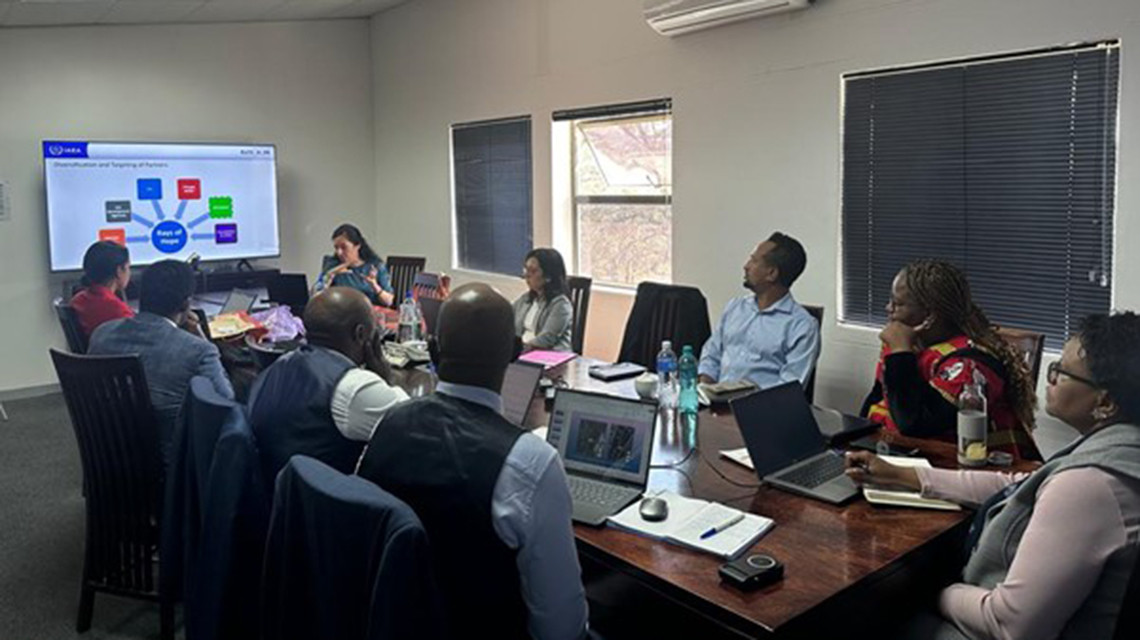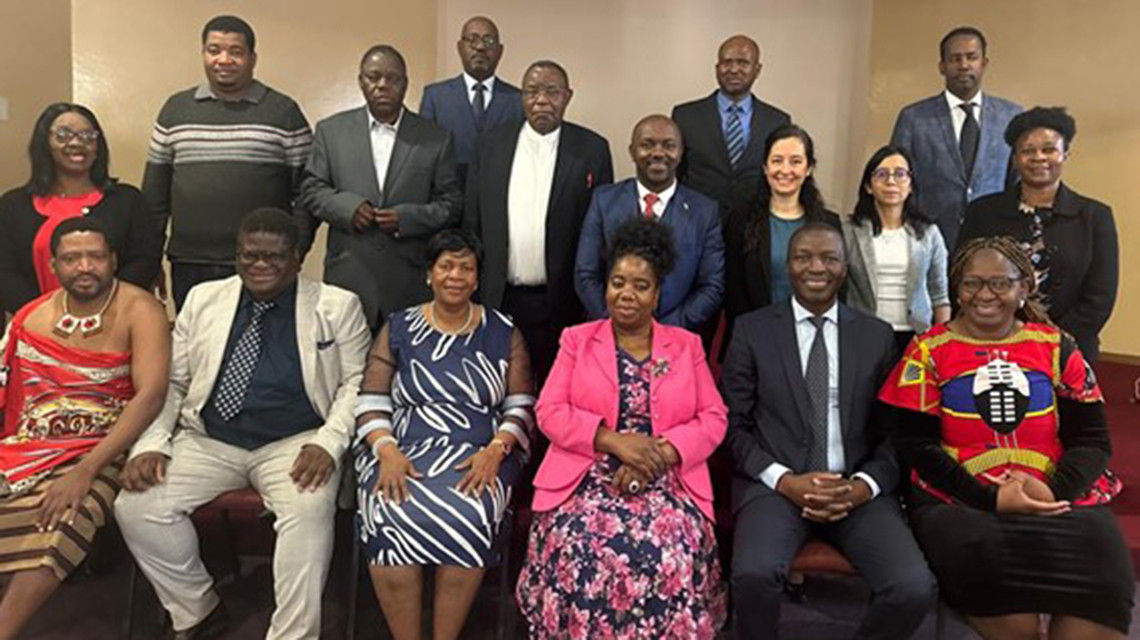Eswatini is taking tangible steps to prepare for its first public radiotherapy centre to enable cancer patients to be treated in-country, according to a team of international experts.
The experts, appointed by the IAEA, World Health Organization (WHO) and the International Agency for Research on Cancer (IARC) to carry out an imPACT Review in the country, found that Eswatini has finalized a strategic funding proposal, enacted a Nuclear and Radiation Safety Law, and surveyed potential sites for geotechnical suitability.
The mission in August 2024 built on a 2017 imPACT Review that laid the foundations for the development and implementation of the National Cancer Control Plan 2019-2023.
Other achievements since that period include the establishment of the National Cancer Control Unit at the Ministry of Health; the introduction of human papillomavirus (HPV) vaccination into the National Immunization Programme; the recruitment of a clinical oncologist and a medical physicist; the creation of a 60-bed chemotherapy unit operating at Manzini Government Hospital; and the development of a draft Nuclear Bill that currently awaits approval by the National Assembly.
Of Eswatini’s 1.2 million people, over 1000 were diagnosed with cancer in 2022, and close to 700 people died of the disease (Globocan). Cancers of the breast, cervix and prostate accounted for more than 50 per cent of these cases. With no radiotherapy services available within the country, the government currently helps patients access this treatment in South Africa using the country’s Phalala Medical Referral Fund.
“This solution is not sustainable,” said Mduduzi Matsebula, Eswatini’s Minister of Health. “Our government is working hard to build a first radiotherapy facility so that our patients can be treated at home, committing already one million euros to the success of this project,” he added.
In support of this goal, Eswatini is in the process of finalizing a strategic funding document to mobilize domestic and international funds. The imPACT Review mission was an opportunity to update key sections of this ‘bankable’ document, including the country’s cancer profile and available infrastructure, as well as requirements for equipment and human resources, and estimated preliminary costs.
The development of strategic funding documents is one of the ways the IAEA provides support to countries. These documents come under the ownership of the country, and are validated by the IAEA through technical and economic feasibility assessments. They provide comprehensive insights into the requirements of proposed projects – tailored to the country’s cancer profile, control plan, existing physical infrastructure and human resource capabilities. They help government decision-makers and funding partners to identify the needs and funds required to set up a radiotherapy facility. In the case of Eswatini, the bankable document represents an important preliminary step towards the establishment of the country’s first radiotherapy centre.











